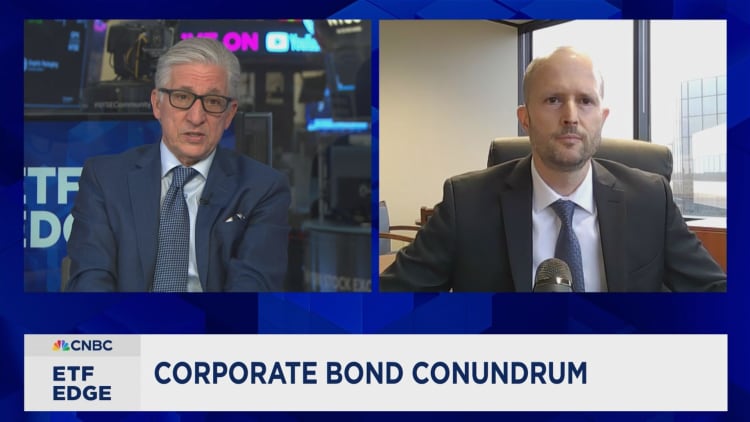Treasury market shift may set investors up for solid gains


Investor sentiment toward intermediate-term Treasury bonds may be changing.
Schwab Asset Management’s David Botset is seeing more flows into bonds with maturity rates typically between three and five years — and sometimes out to 10 years.
“People are starting to realize that we’re kind of at the peak of interest rate increases,” the firm’s head of innovation and stewardship told CNBC’s “ETF Edge” this week. “So, they’re looking to reposition the fixed-income portion of their portfolio to take advantage of where interest rates are likely to go next.”
It’s a shift from last year when short-term bonds and money market funds saw large inflows. Unlike 2023, more investors are trying to come up with a game plan for when the Federal Reserve lowers rates — which could happen as soon as this year.
“When interest rates come down at such point, you not only get the income from that [intermediate-term] bond, you get price appreciation because yields and prices of bonds are the inverse,” said Botset.
In the middle of the yield curve, he added, it’s “less likely for [rates] to come down, and you’ll be able to capture that yield for a longer period of time.”
But Nate Geraci, The ETF Store president, cautions against betting too heavily on the Fed’s next move.
“Taking on some duration risk makes sense, but I wouldn’t go too far out on the curve,” he said. “The risk-return dynamics [of] getting too far out on the long end don’t make a ton of sense to me.”
‘Not a sure thing’
Geraci believes the Fed’s battle against inflation isn’t over, and that could change the timeline for rate cuts.
“If you’re starting to go out on the curve, you’re making the bet that the Fed is actually going to get everything right this time. And they very well may… but that’s not a sure thing,” Geraci said. “Inflation data could still continue to come in hot. The last print we saw was higher than the market anticipated. So, the Fed may stay higher for longer, and I just think you have to be cognizant of that as an investor.”
Read the original article here






